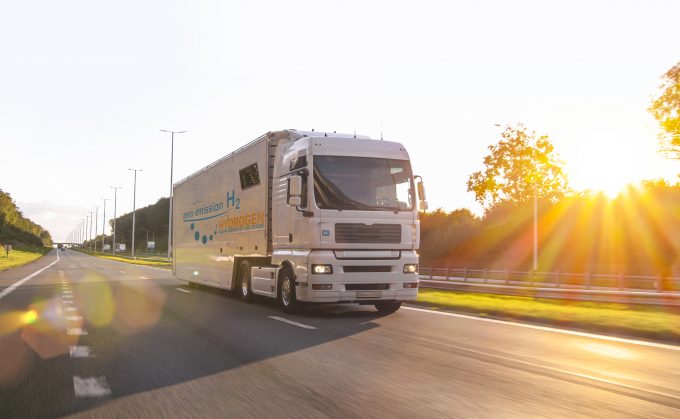Greener shipping – 'further work needed', but all still to play for
Last week’s International Maritime Organization (IMO) ISWG-GHG 18 meeting left little decided and much still ...

The International Road Transport Union (IRU) has “cautiously welcomed” the EC Fit For 55 Green Deal policy revision proposals, while also warning of a “double-dip hit” to road transport.
The so-called Fit For 55 proposals were announced by EC president Ursula von der Leyen on Wednesday and include a plan to cut carbon emissions by 55% by 2030, compared with 1990 levels, and be climate-neutral by 2050 through a tax on carbon and the use of the offsetting Emissions Trading System ...
Keep our news independent, by supporting The Loadstar
Volume surge and an early peak season? 'Don't celebrate too soon,' warning
Container spot rates diverge: to Europe still falling, but firmer to the US
Hapag-Lloyd won't take bookings if port congestion leaves cargo stranded
Ecommerce likely the front-runner in resurge of transpacific trade after deal
China-US trade tariff pause could drive a rebound for transpacific rates
Service chaos from trade ban with India a problem for Pakistan shippers
Airfreight rates ex-China 'loss-making', but hopes of a trade deal stay high
Shippers should check out the 'small print' in China-US tariff cuts
Carriers impose 'emergency operation' surcharges on Pakistan cargo
Serious threat to jobs in US logistics as tariffs cause economic 'stagflation'
15% rebate for box ships as Suez Canal Authority woos carriers
White House u-turns see freighters flying but keep logistics players on their toes
MSC in terminal switch as Nhava Sheva gets strong start to new fiscal year
Peak season or recession? Forwarders and shippers need to 'stay flexible'
Volga-Dnepr claims 'pirate' Canada has 'hijacked' its stranded aircraft

Comment on this article